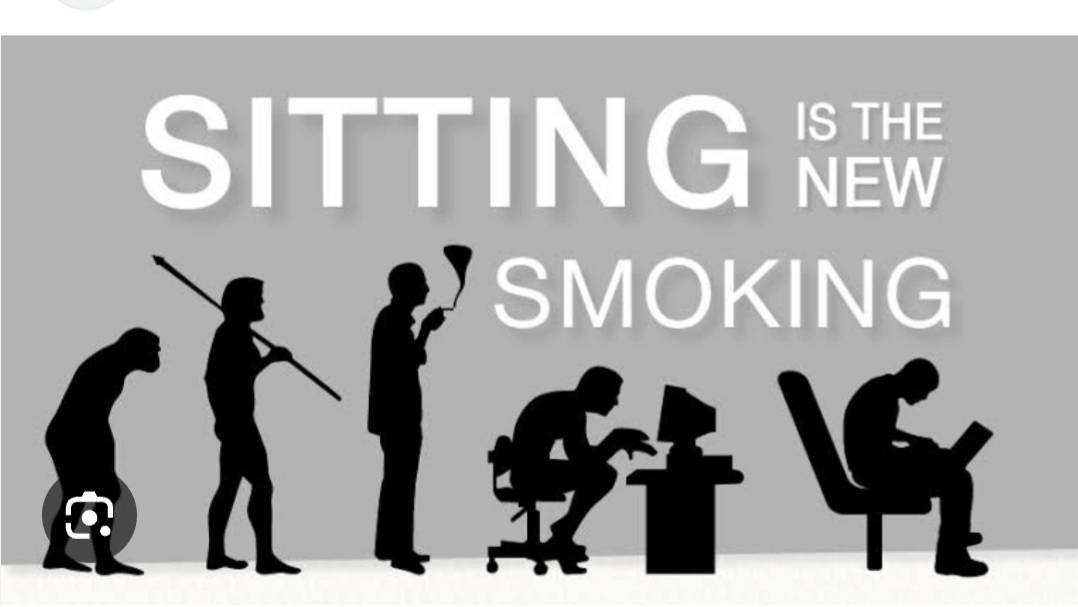Sitting is the New Smoking: Why Your Chair Might Be Hurting You
We’ve all heard it before—“sitting is the new smoking.†At first glance, it may sound like another catchy health slogan meant to scare us away from comfort. But as researchers dig deeper into the consequences of our increasingly sedentary lifestyles, that phrase is beginning to hit closer to home than we’d like to admit.
In a world where technology has made life more convenient than ever, most of us are spending hours at our desks, behind the wheel, or lounging in front of screens. Whether it’s working, relaxing, or commuting, sitting has become our default posture. But the reality is this: our bodies weren’t designed for long periods of inactivity. And just like smoking, the effects of sitting too much don’t always show up right away—but over time, the risks can be deadly.
The Hidden Dangers of Sitting
Prolonged sitting has been linked to a number of serious health problems. According to multiple studies, it increases the risk of heart disease, type 2 diabetes, obesity, certain types of cancer, and even early death. One well-known study published in the journal Annals of Internal Medicine found that extended periods of sitting—even for people who exercise regularly—are associated with a higher risk of mortality.
When you sit for long hours, your body’s metabolism slows down. Calories aren’t burned as efficiently, and enzymes responsible for breaking down fat become less active. Blood flow also slows, which can lead to clotting and increased blood pressure. Over time, this can contribute to heart issues and other chronic conditions.
It’s Not Just Physical
The impact of sitting isn’t limited to physical health—it also affects mental well-being. Extended inactivity can reduce circulation to the brain, which in turn affects concentration, mood, and energy levels. Many people who spend all day seated report feeling sluggish, foggy, or even depressed. Regular movement, even light activity like walking, boosts mood by increasing oxygen flow and releasing endorphins—your body’s natural “feel-good†chemicals.
Modern Life: Designed for Sitting
Part of the problem is how society is structured. Most jobs involve desk work. Meetings, classes, meals, commuting—all involve sitting. Add in entertainment like Netflix, gaming, or scrolling through social media, and it's not hard to see how the average person ends up sitting for 8 to 12 hours a day.
The issue is that unlike smoking, which involves a conscious decision, sitting is embedded in nearly every part of our daily routine. It doesn’t feel harmful while we’re doing it, which makes it even more dangerous. There’s no warning label on your office chair, but maybe there should be.
What You Can Do
The good news? You don’t have to give up your job or toss your favorite chair out the window. Small changes in your daily habits can significantly reduce the risks of prolonged sitting:
-
Stand up every 30 to 60 minutes. Set a timer or use a standing desk if possible. Even a quick stretch or walk around the room can help.
-
Take walking meetings. If you don’t need to be at a screen, take your phone calls or team meetings on the move.
-
Use active furniture. Consider swapping your desk chair for a stability ball or try a treadmill desk for part of your day.
-
Exercise daily. Aim for at least 30 minutes of moderate activity. It doesn’t have to be intense—a walk around the block counts.
-
Rethink your downtime. Instead of binging a show on the couch, watch while on a treadmill or do light stretches. Turn leisure time into movement time.
Shifting the Culture
Addressing the “sitting epidemic†will require a cultural shift. Workplaces should encourage movement, schools should incorporate physical activity into the curriculum, and city planners should promote walkable communities. Just as public health campaigns helped reduce smoking rates, awareness about the dangers of sitting needs to spread.
Employers can take initiative by investing in adjustable desks, encouraging walking breaks, or even holding “movement challenges†to promote healthier habits. As individuals, we can also lead by example—by prioritizing movement, we show those around us that it matters.
Final Thoughts
Sitting may never carry the same stigma as smoking, but its long-term health effects are just as serious. Our modern lifestyles may have made sitting unavoidable, but that doesn’t mean it has to be harmful. With some awareness and intentional changes, we can take back control of our health—one step, stretch, or standing break at a time.




No comments yet
Be the first to share your thoughts!